
The sun seemed to be rising from behind a cloud castle:
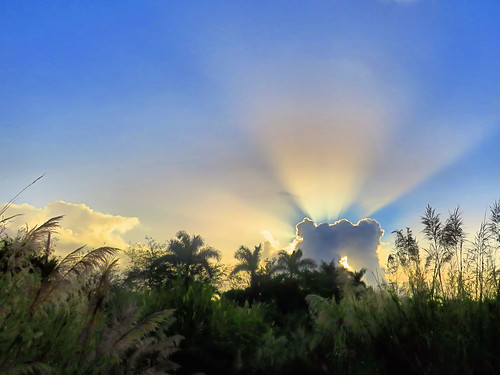
The Lantanas were blooming again and attracting butterflies, a Monarch...
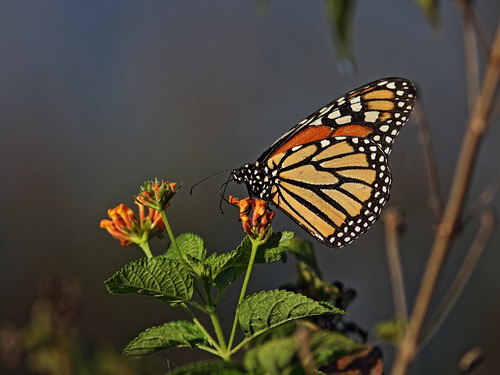
...and a Zebra heliconian:
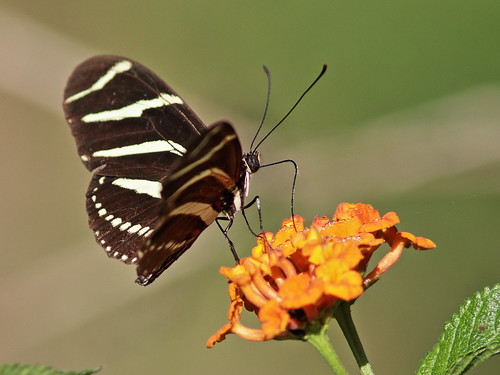
When is a goose not a goose? When it is an Egyptian Goose. These introduced invaders are classified in a sort of no-man's land between the ducks and geese.
A squad of three flew over my head in the Wounded Wetlands. Their calls are ear-splitting:
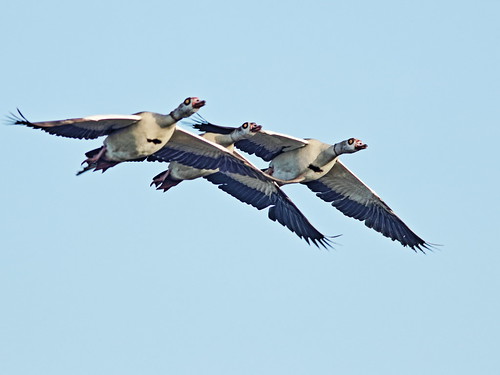
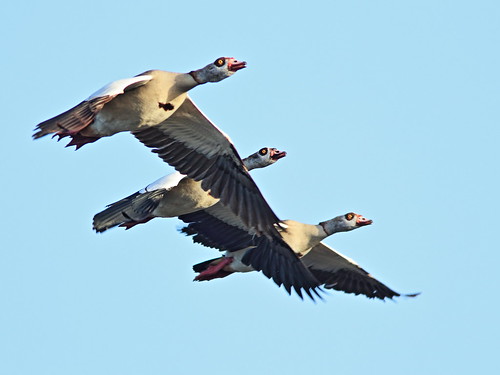
I couldn't fit them all in the view-finder:
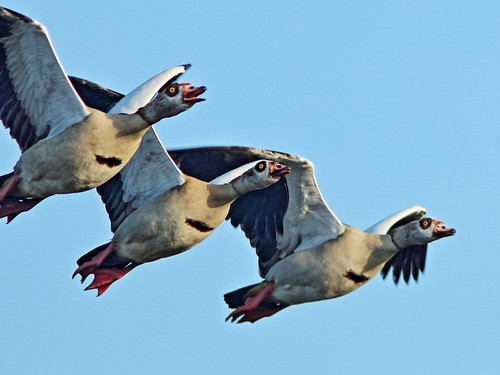
A distant Red-shouldered Hawk was tearing at prey as it roosted on a dead tree:
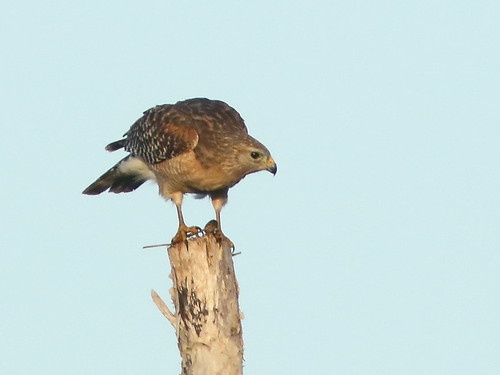
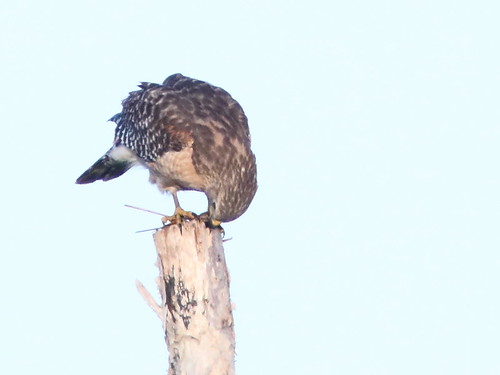
An American Kestrel stared down at me from high atop a pole:
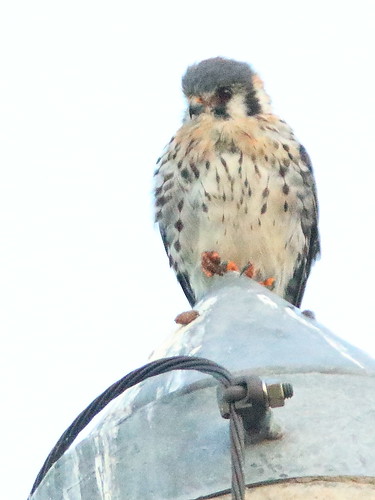
A second kestrel flew up into a fruiting Royal Palm:
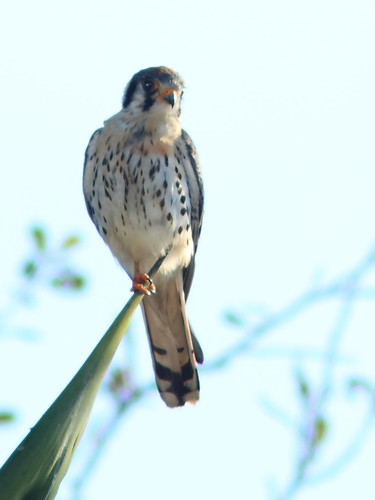
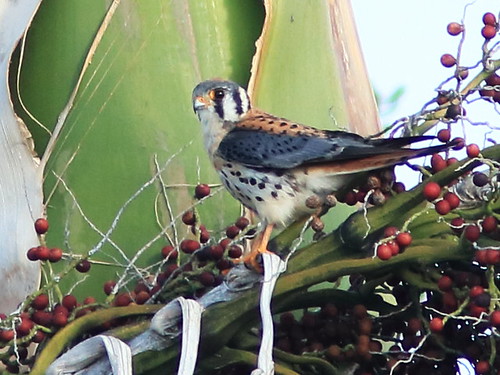
I almost missed seeing a Sharp-shinned Hawk hidden deep in the tree branches:
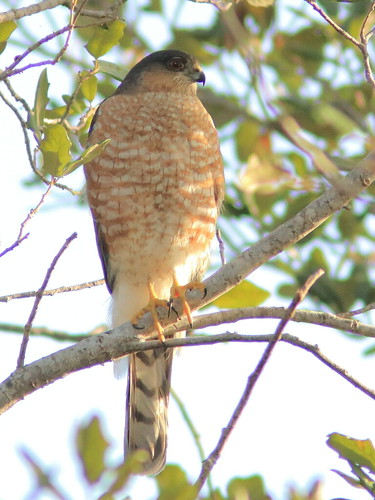

In the rookery a Green Heron shifted its shape:
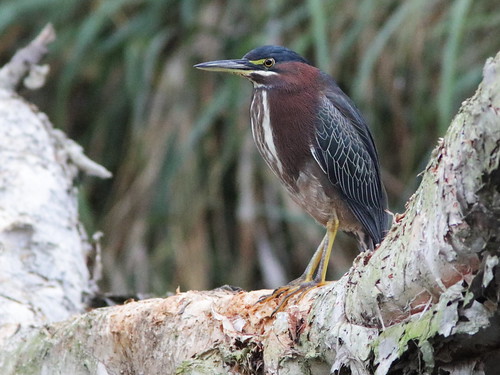
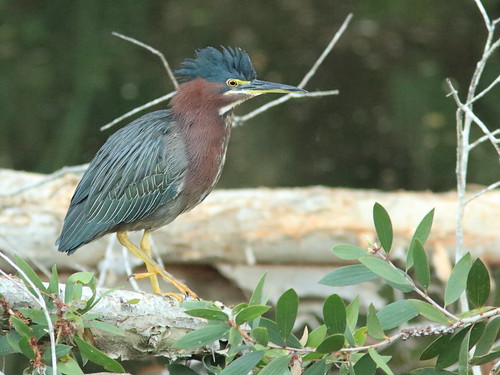
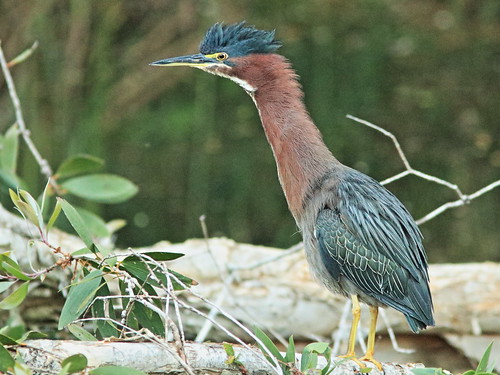
As many as eight Yellow-crowned Night-Herons are not yet paired up, but they are growing plumes and their legs are gradually turning brighter in anticipation of breeding season:
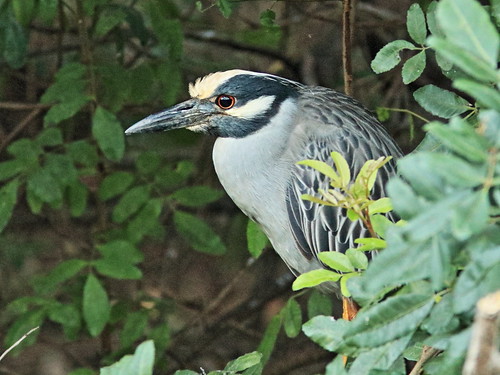
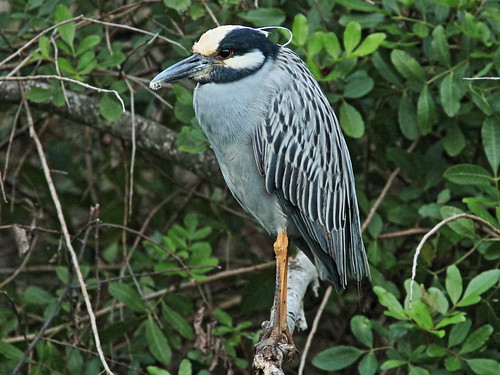
An immature Little Blue Heron pranced along the lakeside:
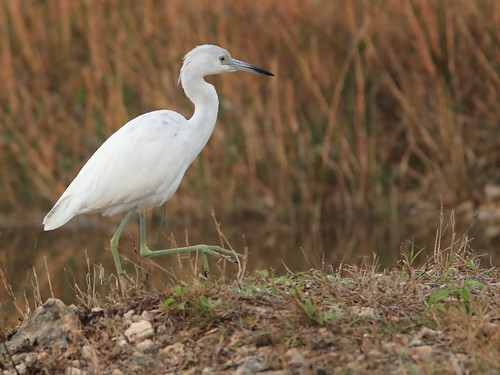
A Brazilian Pepper bush was a pretty spot for a watchful Northern Mockingbird:
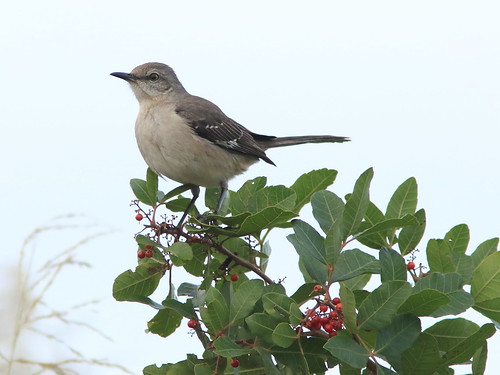
A tiny House Wren came out of hiding for a brief photo-op:
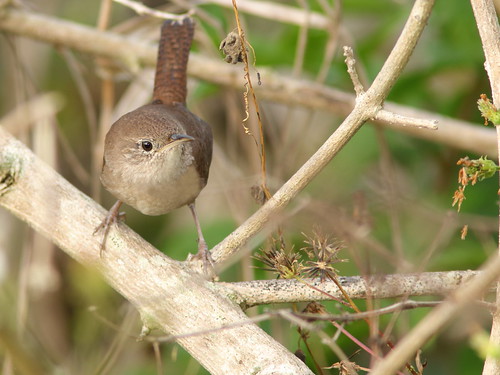
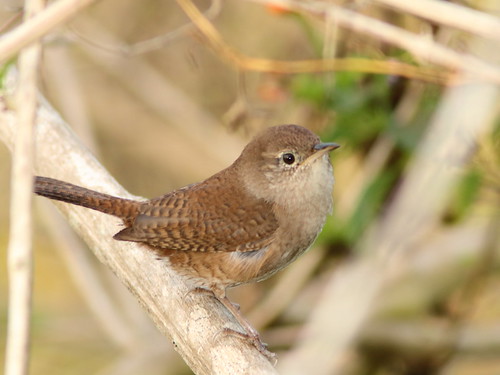
= = = = = = = = = = = = = = =
Linking to Misty's CAMERA CRITTERS,
Linking to Eileen's SATURDAY'S CRITTERS,
Linking to SKYWATCH FRIDAY by Yogi, Sylvia and Sandy
Linking to WEEKEND REFLECTIONS by James
Linking to BirdD'Pot by Anni
Linking to Our World Tuesday by Lady Fi
Linking to Wild Bird Wednesday by Stewart
Linking to Wordless Wednesday (on Tuesday) by NC Sue
Linking to ALL SEASONS by Jesh
________________________________________________
Please visit the links to all these memes to see some excellent photos on display
________________________________________________
you got a few of my favorite critters...and I always love a shot of the sun behind a pretty cloud.
ReplyDeleteI like the Kestrels so much.. but also the Wren!
ReplyDeleteBeautiful images... and love the cloud castle!!
ReplyDeleteStunning pictures!
ReplyDeletestunning rays captured
ReplyDeleteYour Egyptian geese shots remind me of the USAF precision flying teams that perform at air shows.
ReplyDeletegreat images. the first image with reeds is my favourite.
ReplyDeleteWonderful shots! I love the reflection.
ReplyDeleteBeautiful shots.
ReplyDeleteAll of your images are a feast for my eyes. Happy weekend to you.
ReplyDeleteHello Ken, fantastic captures of the geese in flight. They are pretty. I love the Green Heron and the first reflection shot. The sky is beautiful too. Great series of photos. Thank you for linking up and sharing your post. I appreciate your comment and visit. Happy Saturday, enjoy your weekend.
ReplyDeleteThose Egyptian geese are interesting critters. Nice shots all the way around. Have a wonderful weekend.
ReplyDeletemarvelous
ReplyDeleteAll wonderful photos that make me feel as if it's spring outside but that cloud castle photo is exceptional.
ReplyDeleteSuch interesting pics Kenneth. Great reflection pic, looks like a triangle frame around the bird. The Egyptian geese and interesting. Their markings around the eye almost looks painted on. Enjoyed your post.
ReplyDeleteI would enjoy seeing those Egyptian Geese for sure...I have a Question about the Rosy Finch in Sandia Crest, are they there year round?
ReplyDeleteThe first picture is so surreal, I keep looking at it and thinking it is a painting. So well composed!! And of course, the sun behind the cloud is spectacular!
ReplyDeleteIn answer to Sondra's question, the rosy-finches are present at Sandia Crest only during the winter, from early November into mid-March. They are most numerous from mid-December through mid-February.
ReplyDeleteGorgeous photos! Really love that first one! The geese in flight are just amazing! And I loved the Red Shouldered Hawk and Kestrel too. Wonderful post!
ReplyDeleteThe Egyptian Geese look like well-disciplined soldiers. Your photos are wonderful. My favorites are of the geese and the first two photos.
ReplyDeleteI had no idea Egyptian Geese were present in North America. Are these part of an established population or are they escapes from a waterfowl collection? They have certainly colonized many parts of Europe. Great photography by the way.
ReplyDeleteThe design of your first capture is stunning, Ken! And the squad of three is amazing! Reminds me so much of planes! As always all of your captures look professional and interesting. Thanks so much for sharing them with All Seasons! Have a great week, and also thanks for your comment:)
ReplyDeleteWonderful pictures - that water really is like a mirror. I saw Egyptian geese in the UK - they are not native there either!
ReplyDeleteCheers - Stewart M - Melbourne
Beautiful shots!
ReplyDeleteWow! You are SO lucky to be able to see all of those BEAUTIFUL birds! Your photos are spectacular. Haha, I like the way you introduced the Egyptian guess! Very funny.
ReplyDeleteBeautiful photos! It's amazing how many you caught.
ReplyDeleteGreat photos. Favourite would always be the Monarch butterfly.
ReplyDeleteCan see my comment from yesterday did not come through. These beautiful geese in the sky make me think like airplanes! And I didn't know there were night herons! Learned something again:) Many thanks for linking up these beautiful birds to All Seasons! Have a great week!
ReplyDeleteBeautiful photos - I'm jealous of your photography - consistently WOW~
ReplyDeleteThanks for linking up at https://image-in-ing.blogspot.com/2018/02/some-more-from-nasher-museum.html
Your photos of critters are always fabulous to see. What a great variety of birds! I love herons for some reason but all of these images are great to see.
ReplyDeleteA wonderful collection of shots.
ReplyDeleteWow, you capture such great details!
ReplyDeleteSuch beautiful clear portraits that an amateur like me could use as ID references! I didn't know there were Egyptian geese in our State (those aren't the beautiful portraits I was referring to -- but they are lovely flight shots even if the birds are invasive.) I'm sure I've told you that the first year here I thought the green herons were two different species because of how they contort their neck.
ReplyDelete